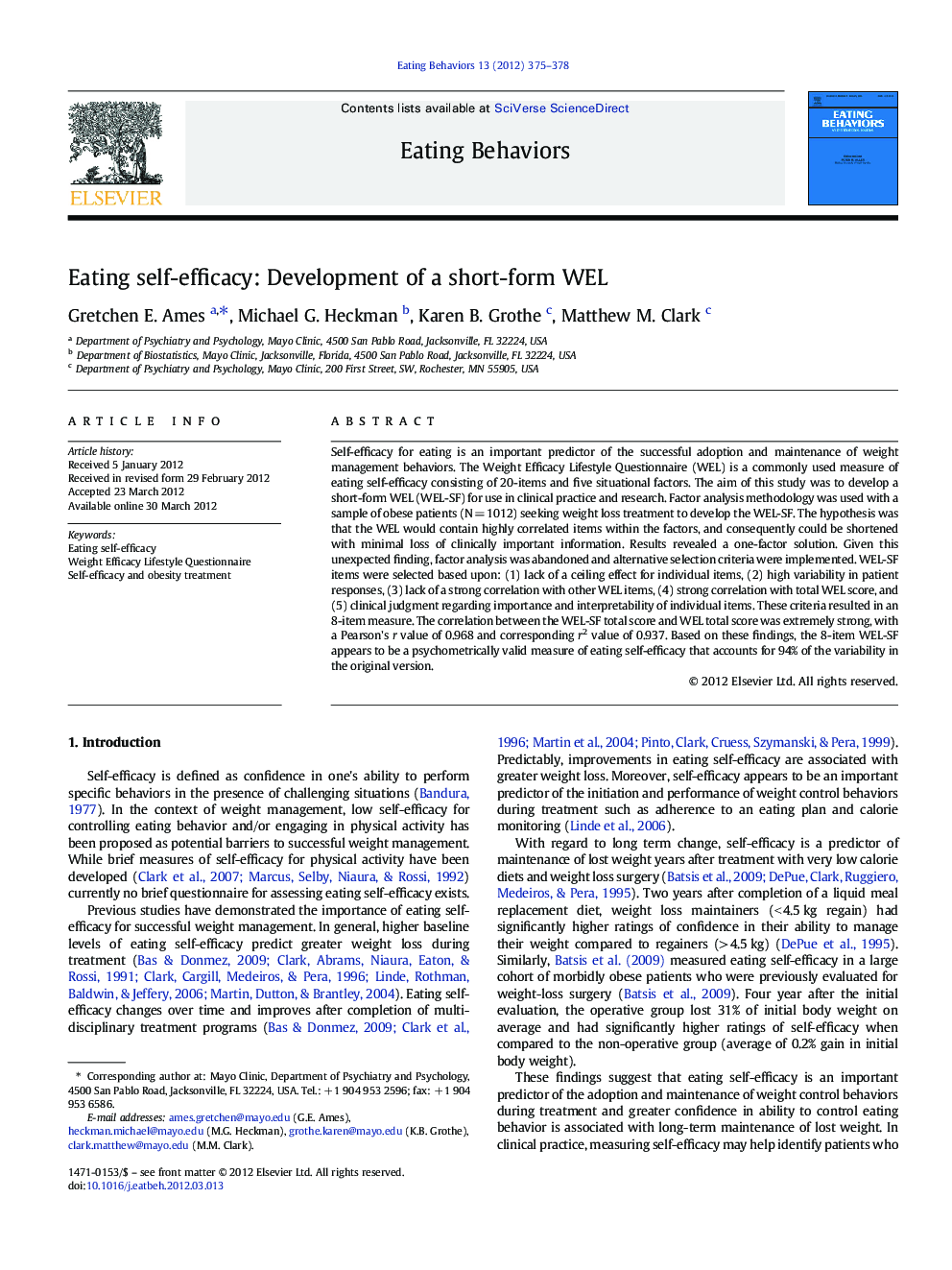| Article ID | Journal | Published Year | Pages | File Type |
|---|---|---|---|---|
| 906666 | Eating Behaviors | 2012 | 4 Pages |
Self-efficacy for eating is an important predictor of the successful adoption and maintenance of weight management behaviors. The Weight Efficacy Lifestyle Questionnaire (WEL) is a commonly used measure of eating self-efficacy consisting of 20-items and five situational factors. The aim of this study was to develop a short-form WEL (WEL-SF) for use in clinical practice and research. Factor analysis methodology was used with a sample of obese patients (N = 1012) seeking weight loss treatment to develop the WEL-SF. The hypothesis was that the WEL would contain highly correlated items within the factors, and consequently could be shortened with minimal loss of clinically important information. Results revealed a one-factor solution. Given this unexpected finding, factor analysis was abandoned and alternative selection criteria were implemented. WEL-SF items were selected based upon: (1) lack of a ceiling effect for individual items, (2) high variability in patient responses, (3) lack of a strong correlation with other WEL items, (4) strong correlation with total WEL score, and (5) clinical judgment regarding importance and interpretability of individual items. These criteria resulted in an 8-item measure. The correlation between the WEL-SF total score and WEL total score was extremely strong, with a Pearson's r value of 0.968 and corresponding r2 value of 0.937. Based on these findings, the 8-item WEL-SF appears to be a psychometrically valid measure of eating self-efficacy that accounts for 94% of the variability in the original version.
► Eating self-efficacy predicts successful adoption of weight management behaviors. ► The Weight Efficacy Lifestyle Questionnaire (WEL) measures eating self-efficacy. ► A short-form WEL (WEL-SF) was developed for use in clinical and research settings.
